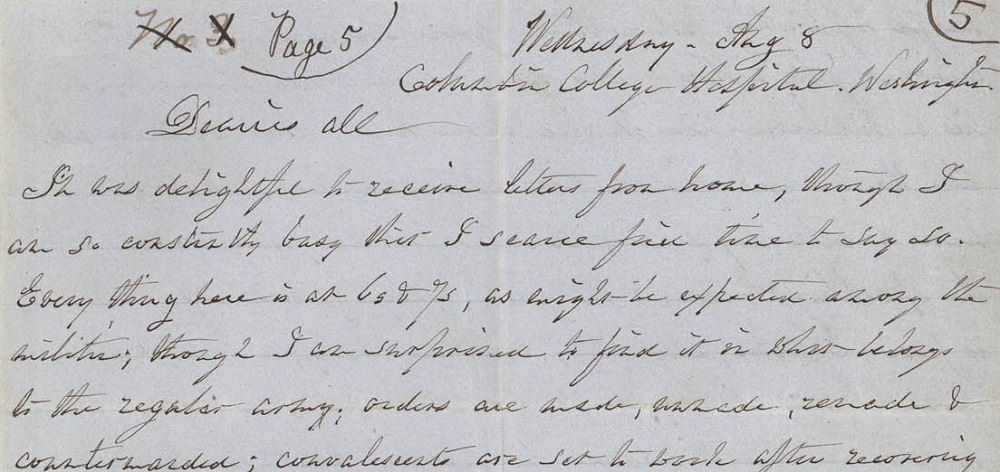By Graham Warder, Ph.D., Keene State College
When Louisa May Alcott, the future author of Little Women, published her first book, Hospital Sketches in 1863, she dedicated the volume “to her friend Miss Hannah Stevenson,” the woman who persuaded Alcott to volunteer as a nurse. Stevenson was 53 years old and already a longtime abolitionist when she became a Civil War nurse. Prior to her service as a nurse from 1861 to 1863, she worked at the Home for Destitute Children in Boston for 30 years. She worked at numerous hospitals, including Union Hospital in Washington, D.C., where she oversaw a ward receiving wounded soldiers from the Second Battle of Bull Run. The first Massachusetts woman to volunteer for the Union as a nurse, she had no formal training and, like many nurses, had a strained relationship with Army surgeons.
Her letters home make for interesting reading. She complains about inefficiency and corruption, food shortages and medications that did more harm than good. In a letter dated August 8, 1861, Stevenson expressed dismay over how nurses were treated, writing, “I cannot get over the surprise of being ordered about by these surgeons as they order the privates; they recognize nothing of the peculiarity of the position.” She also noted the ways the war transformed enlistees and who was to blame for their sufferings: “strong men become babyish, youths without hope; cripples from rheumatism who never knew pain of body before; knapsacks lost with money, or all their clothes; homesick — oh! how homesick they are, & how ignorantly careless of their health their commanders have been!” Nurses, who were required by Superintendent of Army Nurses Dorothea Dix to be “matronly,” could easily infantilize disabled soldiers. The reference to homesickness, or “nostalgia,” is significant. The Medical and Surgical History of the War of Rebellion, published in 1888, lists 5213 official cases of nostalgia, resulting in 58 deaths. According to medical authorities of the Civil War, it was possible to literally die of homesickness.
After the war, Stevenson travelled to Richmond, Virginia, to help establish Freedmen’s Bureau Schools for formerly enslaved African Americans. A lifelong reformer, Stevenson died on June 5, 1887.
Sources:
“Letter from Hannah Stevenson to family and friends, 8 August 1861,” Massachusetts Historical Society. https://www.masshist.org/database/viewer.php?item_id=2163&pid=25 .
